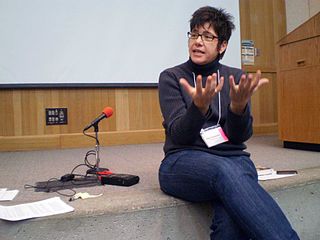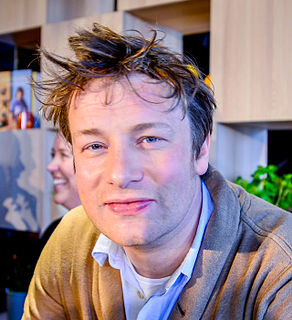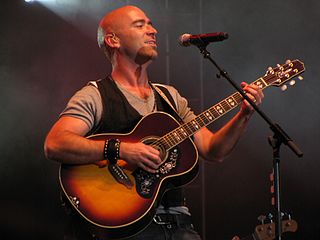A Quote by Terry Gross
I've always been really curious about things and slightly confused by the world, and I think someone who feels that way is in a good position to be the one asking questions.
Related Quotes
You think to yourself, “If one drink feels really good and two feels really, really good, a hundred ought to feel fantastic.” As sane people know, it doesn't work that way. A hundred drinks feels terrible. Bad things happen. But the addict keeps at it, thinking at some point it's going to get good again The point is to not feel what you're feeling. The problem is, you become someone you never thought you would become, and you have no idea how you got there.
Curiosity is a key building block. The more curious you are, the more creativity you will unleash. A great way to do that is to ask the three "magic questions" again and again... those questions are simply, "Why", "What if?", and "Why not?". Asking these questions constantly focused you on the possibilities and away from how things are at the moment.
If you don't put the spiritual and religious dimension into our political conversation, you won't be asking the really big and important question. If you don't bring in values and religion, you'll be asking superficial questions. What is life all about? What is our relationship to God? These are the important questions. What is our obligation to one another and community? If we don't ask those questions, the residual questions that we're asking aren't as interesting.
There are things that I really find important, and that we need to remind ourselves of. When you think about disability, do you really think about it? Someone who's a full-time trainer or a boxer, someone who's got a major disability, but who doesn't let that get in his way, that's a really good message for someone who is able-bodied. It can make them think, 'Wow, I suppose I could be doing better for myself.'
I don't know whether I have ideas all the time. I think I'm curious about things all the time; I think I'm always curious, and I think I'm always interested in whatever passes by, and I know I tend to think about things, and I tend to talk about things, and sometimes that takes root and gives me something to chase.
True stories are always good because they're so odd, and so unlikely. It's always good to have a world that people don't know about - a world that hasn't yet been done. It's like treading on fresh snow. You're the first one there. It always feels good to be dealing with a period of history or a world that no one else has dealt with.
I think there's some pretty amazing language in the Bible. The thing that's always been interesting to me about religion is that compared to the more modern spirituality, the West Coast pseudo-Buddhist thing that people go for these days, actual Buddhism and Islam have been looking at these philosophical questions, at really hard questions, for a long time. There's a lot of stuff that philosophy doesn't talk about, and in the secular world, a lot of times, people don't talk about these ideas, and that was always really interesting for me.
You're not a Black man. You're a human being in God's eyes. So when you sit down to talk to someone and you talk to them in really intelligent terms, you ask difficult questions, there's a militancy that's assigned to you without you asking for it, because you are simply judged by what you look like. If you're a white person asking the same questions, you'd be one of these CNN guys and say how brilliant he is. That doesn't work for you, because this is the world we live in.
Lately, I'm thinking a lot about, in parenting and in my writing, how to create a language about sexism in a way that is attractive and approachable to this age group. I can teach my daughter about not talking to strangers but I can't teach her about how to succeed in a sexist world or even how to exist as a body in a sexist world. I want to begin by asking girls what they want and why they want it? Interrogating that. If this is the sex life you want, what makes you think you want that? I imagine the only way to authentically get at sexuality is by asking those questions.
































